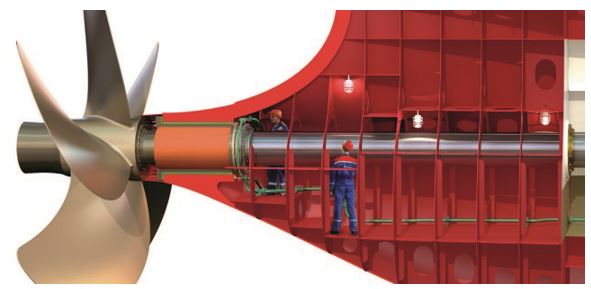
The environmental regulations already in the process of implementation and those still under development represent a radical shift towards lowering and ultimately removing carbon emissions from the industry. Shipowners must shape their business strategies to reflect tightening environmental controls in the coming decade and beyond. However, the focus of all these regulations appears to relate more to the atmospheric related emissions and less to emissions related to ocean-waters pollution. ABS intends to re-visit this through its R&D facilities in the ABS Athens office.
Most ocean-going ships operate with oil-lubricated stern tubes and use lubricating oils in many applications in both on-deck machinery and in-water (submerged) machinery. The issue of oil leakage from stern tubes, once considered a part of the normal operational consumption of oil, has become a greater concern and is now considered to be oil pollution, with associated legal consequences. Greater focus on stern tube leakage and the release of other types of lubricants used in marine shipping operations have led to a need to evaluate alternatives to these oils and ways to monitor and prevent discharge of lubricants during ship operations in ports and at sea. Recent sustainability technologies have not addressed the issue of water pollution due to oil leakage from the aft stern tube bearings of vessels. Environmental regulations have put a greater focus on atmospheric pollution and pertinent emissions.
ABS together with Thordon Bearings Inc, SDARI in China and NTUA have embarked on a study to investigate a significant design intervention in the internals of the aft part of a vessel over typical commercial vessel designs. The joint consortium revisited an existing container vessel design and made a number of design interventions including but not limited to installation of sea water-lubricated bearings.
The installation of aft water lubricating bearings is not something new; many naval and commercial vessels have already successfully installed water lubricated bearings using seawater as the lubricant. However, this design proposal is novel in that it involves removing the sterntube casting itself, substantially decreasing the shaft line length, adding a torsional vibration damper to eliminate the Barred Speed Range, and finally the creation of an Irregularly Shaped Chamber behind the bulkhead of the engine room. This chamber provides several benefits to the operational inspection of the shaft line and bearings throughout the life of the vessel. Therefore, in addition to the zero-pollution risk and the lack of required oil changes, there is now the innovative technical advantage of the Irregularly Shaped Chamber, which provides human access for inspection and even bearing replacement from the interior of the vessel. This means that a bearing replacement project or bearing and shaft line inspection activity would no longer require drydocking or shaft removal, nor propeller removal or realignment using laser sighting. Simply put, a 2-week realignment job in a dry-dock costing an average of $100k USD can now take place in only one day and afloat. This novel design proposal complies with all classification society rules and regulations, such as those governing torsio-axial vibration, shaft alignment, and structural integrity requirements. Shaft line optimization considering the wear down rates of the water lubricated bearing ensure longevity of the system.
The ABS TCM-W Notation can be applied in this case, giving the same benefits as the traditional oil lubricated bearings arrangements, meaning a 15-year maximum inspection interval. To best describe this proposed design concept using the latest technology facilities, a real sized 3-dimensional CAD file has been processed to provide a virtual reality guided tour through the shortened engine room space and most importantly inside the newly invented Irregularly Shaped Chamber. Video animation demonstrating the bearing replacement process when the vessel is afloat is also provided to offer greater detail of this concept. 
Chris Leontopoulos, PhD, MBA, CEng, FIMechE Director, Global Ship Systems Centre American Bureau of Shipping
Latest News

Cost of Living: Why Greece’s 3% Inflation Is Raising Alarm
Greece appears to be in a more difficult position when it comes to price hikes, just as we enter the era of Trump’s tariffs.

Fitch Ratings Upgrades the Four Greek Systemic Banks
NBG’s upgrade reflects the bank’s ongoing improvements in its credit profile, Fitch notes in its report, including strong profitability, a reduction in non-performing exposures (NPEs), and lower credit losses

Trump to Announce Sweeping New Tariffs Wednesday, Global Retaliation Expected
With Trump's announcement just hours away, markets, businesses, and foreign governments are bracing for the fallout of one of the most aggressive shifts in U.S. trade policy in decades.

Inflation in Greece at 3.1% in March, Eurostat Reports
Average inflation in the eurozone settled at 2.2%, compared to 2.3% in February

Greece’s Unemployment Rate Drops to 8.6% in February
Despite the overall decline, unemployment remains higher among women and young people.

Jerry Kalogiratos Highlights Key Role of Energy Transition and Data Demand in LNG Outlook
Energy transition and the prospects of LNG were discussed at Capital Link’s 19th Annual International Maritime Forum, during a panel discussion with Jerry Kalogiratos (Capital Clean Energy Carriers Corp.)

Santorini Safe and Ready for a Dynamic Tourism Season
Authenticity, cultural heritage, and genuine experiences at the center of Santorini's new promotional campaign

Electricity Bills: Greece Announces Reduced Tariffs Schedule
Greece will now offer lower electricity rates between 11:00-15:00 and 02:00-04:00

Chevron Confirms Eyeing Natural Gas Exploration South of Crete
Chevron recently declared its intent to explore a third area, south of the Peloponnese.
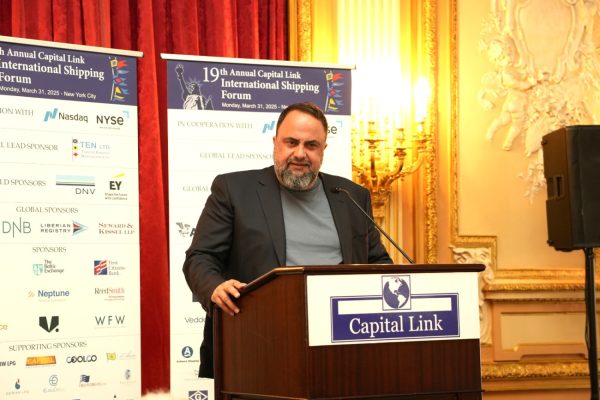
Evangelos Marinakis: A time of change from which shipping can benefit
Speaking at the 19th Annual Capital Link International Shipping Forum Evangelos Marinakis stressed the challenges that shipping faces today












![Τουρκία: Μεγάλες βλέψεις για παραγωγή ηλεκτρικών οχημάτων [γράφημα]](https://www.ot.gr/wp-content/uploads/2025/03/ot_turkish_autos-90x90.png)











![ΕΛΣΤΑΤ: Αυξήθηκε η οικοδομική δραστηριότητα κατά 15,6% το Δεκέμβριο [πίνακες]](https://www.ot.gr/wp-content/uploads/2025/03/DSC9655-2-1024x569-1-90x90.jpg)


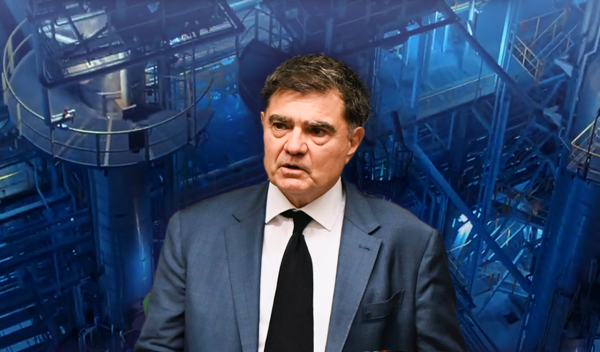



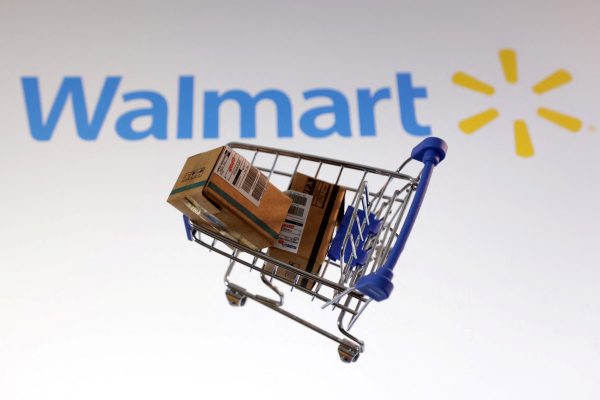
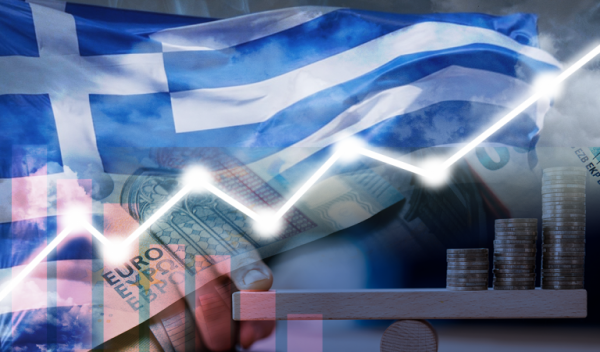
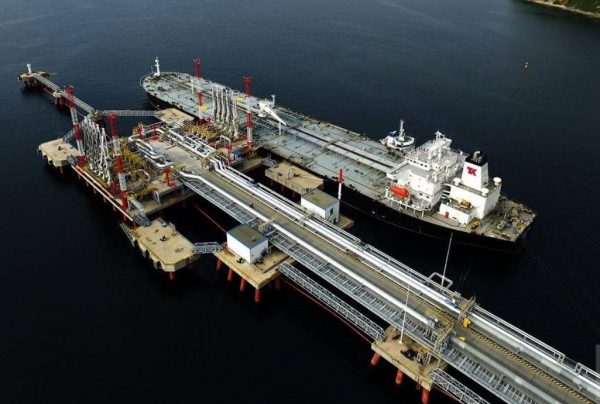
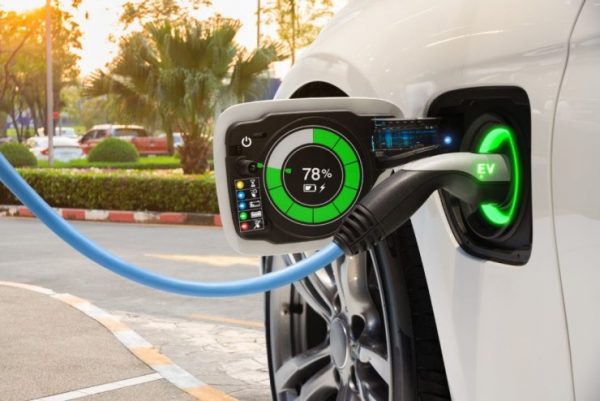




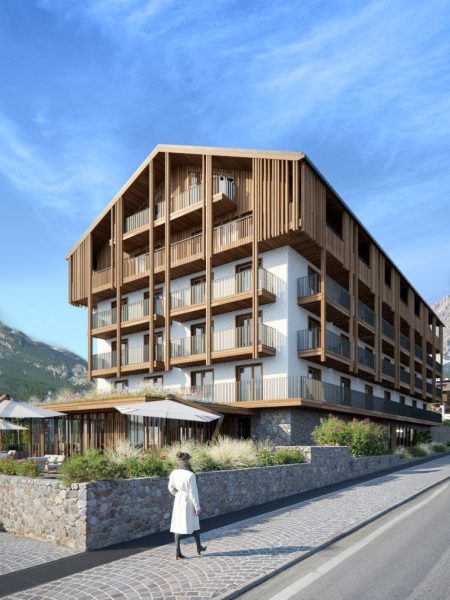


 Αριθμός Πιστοποίησης
Αριθμός Πιστοποίησης